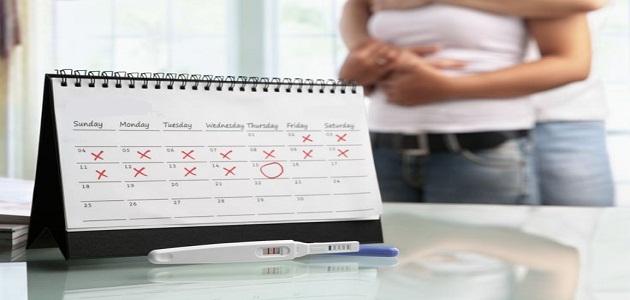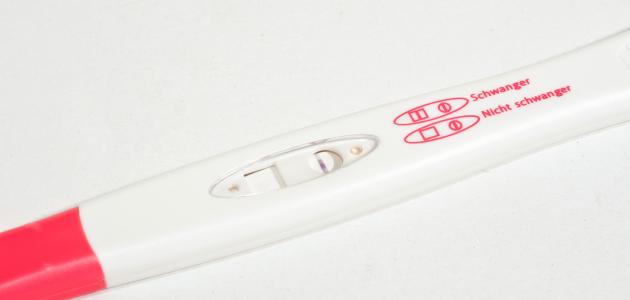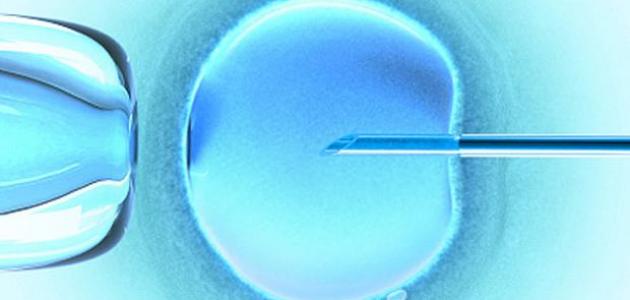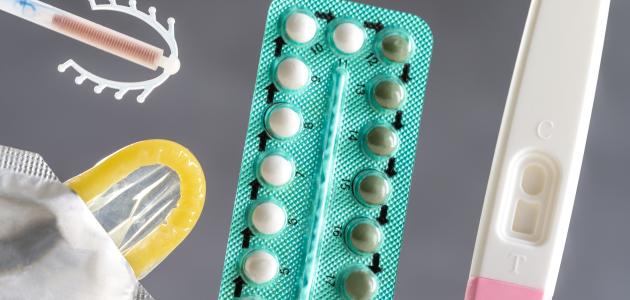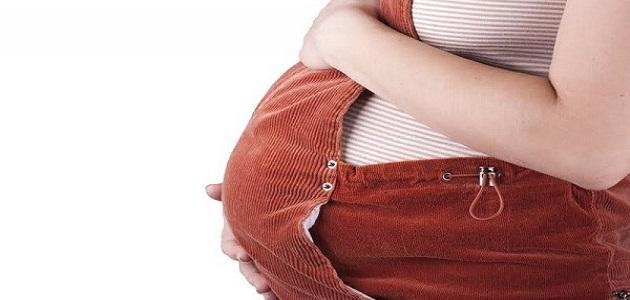Contents
Home pregnancy test
Pregnancy occurs when the female egg is fertilized by the male sperm , and then this egg grows in the womb to develop into a fetus as a baby, and the period of pregnancy lasts approximately 264 days starting from the day in which the female egg was fertilized, but doctors calculate the period of pregnancy from the beginning of the first day A pregnant woman's last menstrual period ; Thus, the period becomes 280 days, equivalent to approximately 40 weeks. [1] [2] In fact, the duration of pregnancy is divided into three stages , and the length of each stage extends to approximately three months. [3]
The pregnancy test has been designed to help the concerned woman or persons to know whether or not there is a pregnancy hormone in the urine or blood. The pregnancy hormone is scientifically called the human chorionic gonadotropin ), And the secretion of this hormone begins in the woman immediately after implantation of the fertilized egg in the uterine wall. [4] Pregnancy tests are simple and accurate. It only requires a few drops of the woman's urine on the slide for testing, in addition to being inexpensive, and it is available in most pharmacies. [5]
When to take a home pregnancy test
A pregnant woman can use many methods and tests to detect the presence of her pregnancy, and the most prominent of these tests is the home urine test, which predicts the existence of pregnancy in the event that the result is positive, and the result can be confirmed through a blood test, or by an ultrasound scan It is known among the people in the name of sonar , or by detecting the heartbeat fetal heart . [6]
It should be noted that the use of home pregnancy tests starting from the first day after the delay of the menstrual cycle is more accurate, however some tests can be used earlier, on the fourth or fifth day before the date of the menstrual cycle, and the woman should check the instructions on the package The test in order to know the most appropriate time to perform the test correctly. It should be noted that it is easier to do pregnancy tests if a woman has a regular menstrual cycle, as she is often able to determine the date of her next period, but if a woman’s menstrual cycle is irregular , it is wise to wait for at least three weeks after she thinks that she may be pregnant. Then, after that time, you take the test. [7]
It is often recommended to take a pregnancy test that depends on the presence of the pregnancy hormone early in the morning, and it is preferable to take it directly after awakening from sleep. The reason for this is that the concentration of this hormone is the most possible at this time, in general. [4]
How accurate are pregnancy tests
The accuracy of the home pregnancy test based on measuring the concentration of the pregnancy hormone in the urine is estimated at 99%, but the pregnancy test that depends on analyzing a sample of blood is more correct and accurate, and the accuracy of the home pregnancy test depends on many factors, including the following: [4]
- The woman's commitment to follow the instructions on the cover of a home pregnancy test.
- How sensitive and accurate is the home pregnancy test itself.
- The date of ovulation in a woman’s cycle, and the time when the fertilized egg implants into the lining of the uterus .
- When the home test was done and how close it is to when the pregnancy occurred.
Meaning of pregnancy test results
It is worth noting that a home pregnancy test gives one of two results: They are: the positive result or the negative result, and it is very important to know what each outcome means and what it indicates, and in what follows to clarify this: [4]
- Positive result: If a woman gets a positive result, it means that she is pregnant, whether the line that appears on the strip for the pregnancy test is pale or very thin, and when the woman gets that positive result, it is preferable to contact the doctor to get correct instructions from him about What to do next. It should be noted that in rare cases, a woman may get a false positive result. Which means that she is not in fact pregnant, but the test tells otherwise, and this result may appear due to the presence of protein or blood in the urine, or because the woman takes certain drugs, such as: fertility drugs, sleeping drugs , and antiepileptic drugs.
- Negative result: If the woman gets a negative result; This means that she is not pregnant, but in some cases the woman is pregnant, but the test showed a false negative result, and this is due to the following reasons:
- Home pregnancy test has expired.
- The woman is in a hurry to take a home pregnancy test, and the date for a pregnancy test has not yet come.
- The woman's incorrect use of a home pregnancy test resulted in an incorrect result.
- The woman consumed large quantities of fluids , which led to the urine sample that was used being significantly diluted.
- Taking some types of medication; Diuretics and antihistamine medications .
The importance of detecting pregnancy early
Women who are diagnosed with early pregnancy, and who receive good and proper prenatal care and health care , are more able to have a healthy and smooth pregnancy experience, and the chance of giving birth to a healthy baby is greater, and it is very important to get a general idea about what can happen with a woman during The entire period of pregnancy; This is to enhance monitoring of the mother's health and that of her baby and ensure that the pregnancy is developing properly. It should be noted that there are various effective forms of delaying pregnancy that parents can take into account if they wish to prevent pregnancy . [8]
References
- ↑ "Stages of pregnancy" , womenshealth.gov , 1-31-2019, Retrieved 29-3-2019. Edited.
- ↑ Suzanne R Trupin (5-2-2019), "Pregnancy Week by Week" , emedicinehealth.com , Retrieved 29-3-2019. Edited.
- ↑ Melissa Conrad Stöppler (23-1-2019), "Stages of Pregnancy: Week by Week" , onhealth.com , Retrieved 29-3-2019. Edited.
- ^ A b t w Traci C . Johnson (11-2-2019), "Pregnancy Tests" , Webmd.com , Retrieved 1-4-2019. Edited.
- ↑ "Pregnancy Tests" , plannedparenthood.org , Retrieved 1-4-2019. Edited.
- ↑ "Medical Definition of Pregnancy" , medicinenet.com , 11-12-2018, Retrieved 27-3-2019. Edited.
- ↑ "How soon can I do a pregnancy test?" , nhs.uk , 24-9-2018, Retrieved 29-3-2019. Edited.
- ↑ Kristeen Cherney, Kathryn Watson, Karen Lamoreux (28-2-2019), "What Do You Want to Know About Pregnancy?" , Healthline.com , Retrieved 27-3-2019. Edited.
